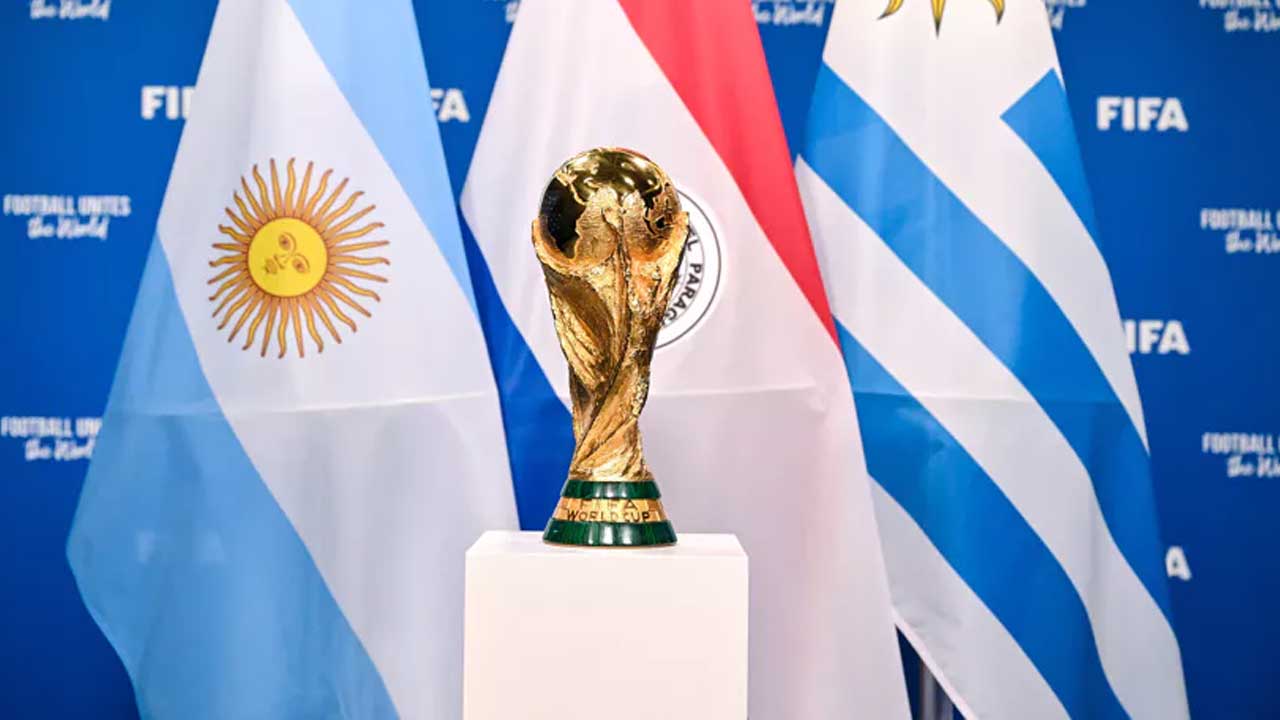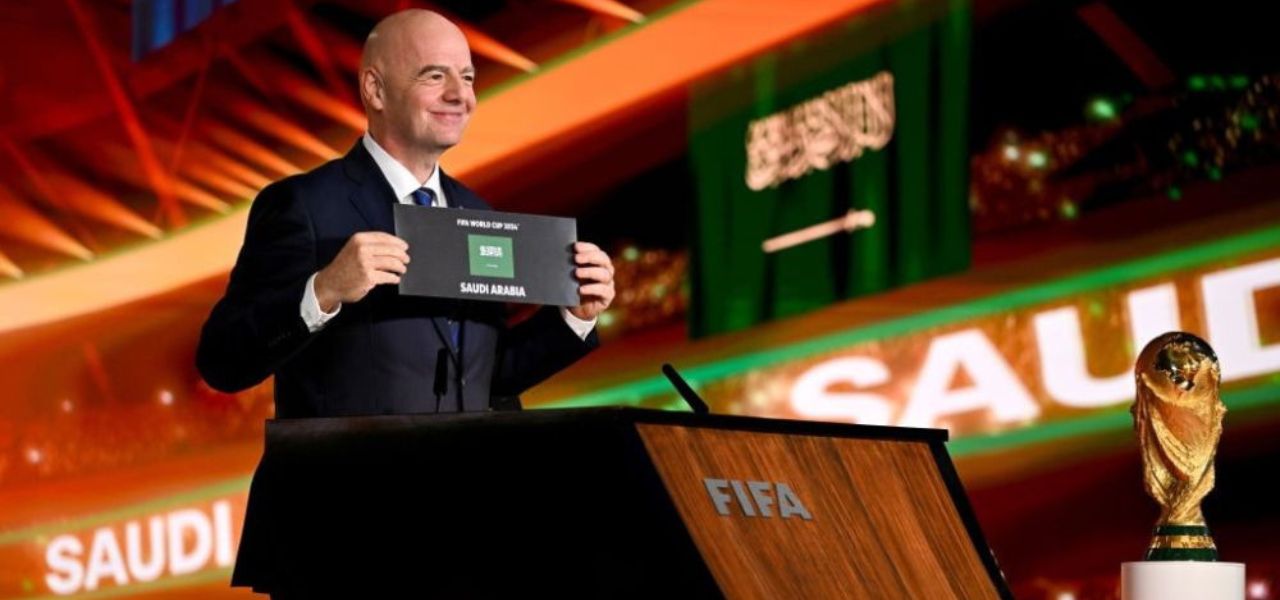FIFA has officially designated Saudi Arabia as the host of the 2034 World Cup, with the 2030 tournament to be held across Morocco, Portugal, and Spain. Additionally, three opening matches will take place in Uruguay, Paraguay, and Argentina, commemorating the tournament’s centennial. The announcement was made during an extraordinary general congress, presided over by FIFA president Gianni Infantino.
Single Bids Secure Hosting Rights
Both the 2030 and 2034 tournaments received single bids, leading to their approval by acclamation. Over 200 FIFA member federations confirmed their support during a virtual session. Infantino highlighted the benefits of the expanded tournament format, stating, “We are bringing football to more countries, and the expanded format has enhanced opportunities for all.”
Saudi Arabia’s Vision for 2034

Saudi Arabia, the sole bidder for the 2034 World Cup, will host the tournament as part of its Vision 2030 transformation plan. Prince Abdulaziz bin Turki Al Saud, president of the Saudi Olympic and Paralympic Committee, emphasized the importance of this achievement: “This is a historic moment for Saudi Arabia and a testament to our progress under Vision 2030.”
The announcement builds on the momentum of the 2022 FIFA World Cup, which showcased Qatar’s capability to deliver a successful tournament in the Middle East. Saudi Arabia aims to replicate and expand on this success, promising state-of-the-art infrastructure and a memorable experience for fans.
The 2034 World Cup’s confirmation followed FIFA’s earlier declaration that the tournament would be hosted in the Asia or Oceania region. Australia and Indonesia explored a joint bid but ultimately withdrew, leaving Saudi Arabia’s candidacy unchallenged. Yasser Al Misehal, president of the Saudi Arabian Football Federation, remarked, “Hosting the World Cup is the ultimate honor, and we aim to make a positive global impact.”
Also Read: Everything You Need To Know About FIFA World Cup 2022 In Qatar
Centenary Celebration: 2030 World Cup

The 2030 World Cup will celebrate 100 years since the tournament’s inception, with matches spanning six countries and three continents. Uruguay, Paraguay, and Argentina will each host one opening match, paying homage to the first-ever World Cup in 1930, held in Montevideo, Uruguay.
Infantino described the milestone as unparalleled: “What better way to celebrate 100 years of the World Cup than with 48 teams and 104 matches across three continents?”
Also Read: Classic Football History of the FIFA World Cup
Infrastructure and Logistics
Saudi Arabia has pledged to build eight new stadiums to accommodate the expanded 48-team format. Drawing inspiration from the 2022 World Cup’s success, the Kingdom plans to deliver world-class facilities and an unmatched fan experience. Cristiano Ronaldo, who has played in Saudi Arabia since 2022, expressed confidence: “2034 will be the best World Cup ever.”
Despite these ambitious plans, FIFA’s proposal for a winter World Cup in Saudi Arabia has sparked opposition from major European leagues, including the Premier League and LaLiga. These organizations have raised concerns over potential disruptions to the football calendar, with FIFA requiring a “concrete agreement” to proceed.
Also Read: Explore Top Qatar Stadiums For FIFA World Cup 2022
Criticism Over Human Rights Issues
FIFA’s decision has drawn criticism from human rights groups, including Amnesty International, which expressed concerns over Saudi Arabia’s human rights record. Steve Cockburn, Amnesty’s head of labor rights and sport, stated, “Awarding the 2034 World Cup to Saudi Arabia without adequate human rights protections is reckless.”
Saudi Arabia has denied allegations of human rights abuses, asserting that its laws are designed to safeguard national security.
Conclusion
The 2030 and 2034 World Cups signal FIFA’s commitment to expanding the tournament’s global reach. While these events promise historic celebrations and significant advancements in infrastructure, they also bring logistical and ethical challenges that FIFA and host nations must address. Saudi Arabia, buoyed by the legacy of the 2022 World Cup, has the opportunity to set new standards for football’s most prestigious tournament.










